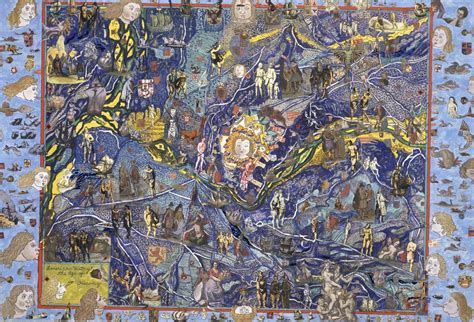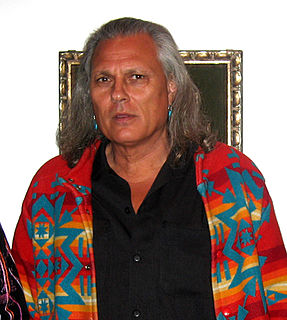A Quote by Richard Wagner
The measures and acts which show us violently disposed towards the outer world can never stay without a violent reaction on ourselves.
Related Quotes
In contrast to revenge, which is the natural, automatic reaction to transgression and which, because of the irreversibility of the action process can be expected and even calculated, the act of forgiving can never be predicted; it is the only reaction that acts in an unexpected way and thus retains, though being a reaction, something of the original character of action.
Glad and merry and sweet is the blessed and lovely demeanour of our Lord towards our souls, for he saw us always living in love-longing, and he wants our souls to be gladly disposed toward him . . . by his grace he lifts up and will draw our outer disposition to our inward, and will make us all at unity with him, and each of us with others in the true, lasting joy which is Jesus.
You can give without loving, but you can never love without giving. The great acts of love are done by those who are habitually performing small acts of kindness. We pardon to the extent that we love. Love is knowing that even when you are alone, you will never be lonely again. & great happiness of life is the conviction that we are loved. Loved for ourselves. & even loved in spite of ourselves.
Any form of corporal punishment or 'spanking' is a violent attack upon another human being's integrity. The effect remains with the victim forever and becomes an unforgiving part of his or hier personality--a massive frustration resulting in a hostility which will seek expression in later life in violent acts towards others. The sooner we understand that love and gentleness are the only kinds of called-far behavior towards children, the better. The child, especially, learns to become the kind of human being that he or she has experienced. This should be fully understood by all caregivers.
History affords us many instances of the ruin of states,
by the prosecution of measures ill suited to the temper and
genius of their people. The ordaining of laws in favor of one
part of the nation, to the prejudice and oppression of another, is certainly the most erroneous and mistaken policy. ... These measures never fail to create great and violent jealousies and animosities between the people favored and the people oppressed; whence a total separation of affections, interests, political obligations, and all manner of connections, by which the whole state is weakened.
We perceive and interpret the outer world through a set of incredibly fine internal receptors. But we are incapable, by ourselves, of grasping or tweezing out any permanent, sharable figment of it. Practically speaking, we ritually verify what is there, and are disposed to call it reality. But, with photographs, we have concrete proof that we have not been hallucinating all our lives.
Let every creature have your love. Love, with its fruits of meekness, patience, and humility, is all that we can wish for ourselves and our fellow creatures. For this is to live in God, united with him, both for time and eternity. To desire to communicate good to everyone, in the degree that we can and to which each person is capable of receiving from us, is a divine temper, for thus God stands unchangeably disposed towards the whole creation.
Life, as we find it, is too hard for us; it brings us too many pains, disappointments and impossible tasks. In order to bear it we cannot dispense with palliative measures... There are perhaps three such measures: powerful deflections, which cause us to make light of our misery; substitutive satisfactions, which diminish it; and intoxicating substances, which make us insensible to it.
We but mirror the world. All the tendencies present in the outer world are to be found in the world of our body. If we could change ourselves, the tendencies in the world would also change. As a man changes his own nature, so does the attitude of the world change towards him. This is the divine mystery supreme. A wonderful thing it is and the source of our happiness. We need not wait to see what others do.
All work, the genuine work which we must achieve, is that which is most difficult and painful: the work on ourselves. If we do not freely take upon ourselves this pre-acceptance of the pain and torment, they will be visited upon us in an otherwise necessary individual and universal collapse. Anyone disassociated from his origin and his spiritually sensed task acts against origin. Anyone who acts against it has neither a today nor a tomorrow.








































